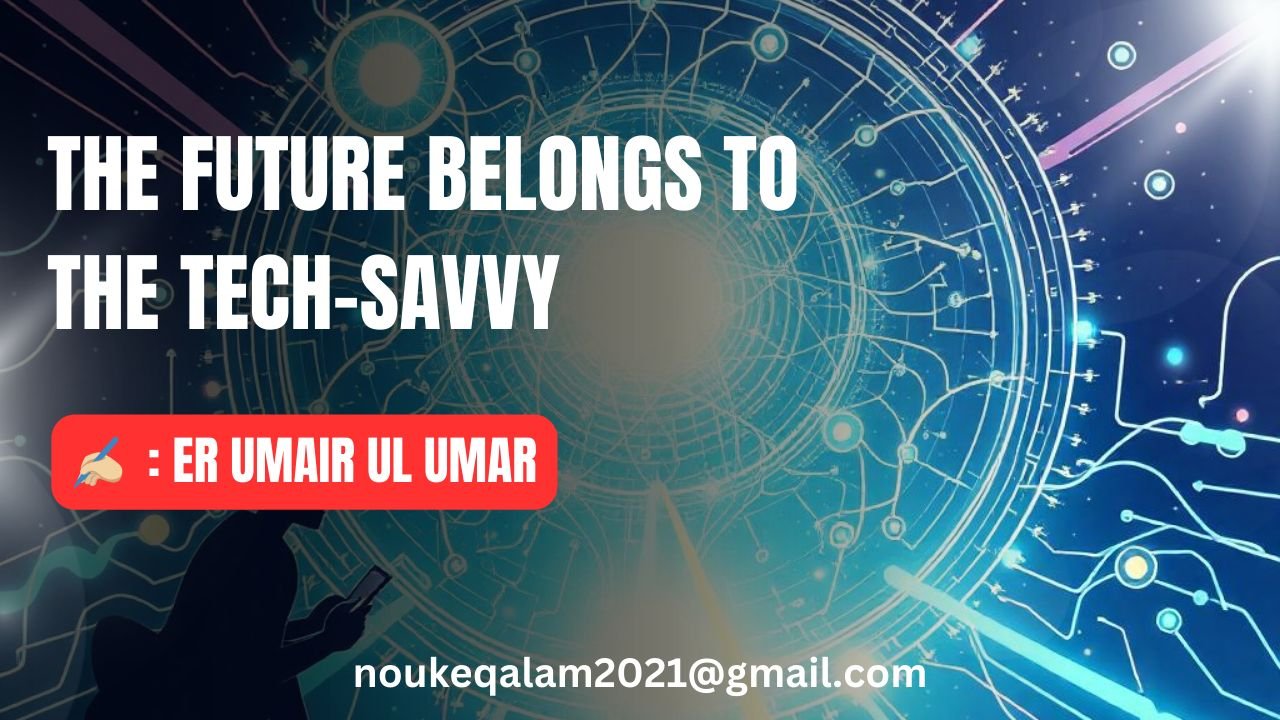AI, or artificial intelligence, is a buzzword that seems to be on the tip of everyone’s tongue these days. It is playing an increasingly important role in our society. From smartphones and robotic-virtual surgeries to consumer applications, the impact of AI and ML is changing the world around us. They are enhancing every gadget, in every nook and corner, with smartness.
“The science and engineering is making intelligent machines, especially intelligent computer programs,” said John McCarthy, the father of AI. The super-genius and brainy species created by the Supreme Creator is one of the most miraculous and stunning creations in the cosmos. The wizardly intellect is a shining masterpiece of Almighty Allah. Man has used this intellect to create mimics and embed them into machines, leading to the foundation of a new and emerging branch of technology called Artificial Intelligence.
The Information Technology industry is experiencing a boom like never before, and more brands are looking to expand into the AI arena, such as ChatGPT, ELSA Speak, Google Assistant, Gemini, and others, due to its immense potential. New trends arise within this industry every year, and it is crucial for professionals to stay familiar with these trends. No matter what profession one is in, being aware of these trends can enhance one’s professional standing. Yet, the spectacular growth of the mobile application industry may fall short of its promise unless key players in the field keep up with the innovative know-how that shapes modern civilization in the early third millennium. One such technology is artificial intelligence (AI)—a disruptive breakthrough in the world of machines and computer systems that equips them with the ability to solve complex problems, emulating the operations of the human brain.
Why Artificial Intelligence is Becoming Popular
The size of the global AI-based mobile app development industry was estimated at USD 19.59 billion in 2023 and is expected to reach USD 170.07 billion by 2032, at a CAGR of 27.14%. Such figures are not surprising, given that artificial intelligence in mobile apps has remained at the forefront of technology for many years, which, according to experts, “is the future.”
The main drivers of this industry are AI algorithms, machine learning, natural language processing, and computer vision, which allow AI-integrated apps to analyze incoming information like the human brain (but thousands of times faster) and, just like the human brain, generate conclusions based on this information. This could mean providing users with a selection of films based on their viewing history, diagnosing a patient’s physical condition, or something else entirely.
Machine Learning
Machine learning (ML) is likely the most popular artificial intelligence technology in IT. ML refers to the ability of computers and software products to make informed decisions and draw conclusions by learning from past experiences.
This capacity is achieved through two techniques. First, the supervised learning model is honed to predict future responses to new data by analyzing historical inputs and outputs. Unsupervised learning works only with input information, discovering persistent patterns (a.k.a. clustering). Whatever ML strategy is chosen, it opens broad vistas for implementation in apps used across various industries—from education and healthcare to sales and manufacturing. You can learn more about AI in manufacturing here.
I’m sure that for many of us, the term “AI” conjures up sci-fi fantasies or fears about robots taking over the world. The depictions of AI in the media have run the gamut, and while no one can predict exactly how it will evolve in the future, current trends and developments paint a much different picture of how AI will integrate into our lives.
What is AI?
Before we dive deep into how AI will impact the future of work, it’s important to start simply: what is AI? A straightforward definition from Britannica states that artificial intelligence is “the ability of a digital computer or computer-controlled robot to perform tasks commonly associated with intelligent beings.” “AI” has become a catch-all term to describe advancements in computing, systems, and technology where computer programs can perform tasks or solve problems that require the kind of reasoning we associate with human intelligence, even learning from past processes.
This ability to learn is a key component of AI. Algorithms, like the dreaded Facebook algorithm that replaced our friends’ posts with sponsored content, are often associated with AI. But there is a key distinction. An algorithm is simply a “set of instructions,” a formula for processing data. AI takes this to another level, consisting of a set of algorithms that can change and rewrite themselves in response to inputted data, thereby displaying “intelligence.”
Provided there is investment at all levels—from education to the private sector and governmental organizations, anywhere that focuses on training and upskilling workers—AI has the potential to ultimately create more jobs, not fewer. The question should then become not “humans or computers” but “humans and computers” working together in complex systems that advance industry and prosperity.
AI is Becoming Standard in All Businesses, Not Just in Tech
Recently, AI has come up in conversations with clients and associates, and I’ve noticed a fallacy in how people think about it. Many seem to believe that it is a phenomenon likely to have significant impacts only in the tech world. In fact, 90% of leading businesses already have ongoing investments in AI technologies. More than half of businesses that have implemented some form of AI-driven technology report experiencing greater productivity.
AI is likely to have a strong impact on certain sectors in particular:
Healthcare: The potential benefits of utilizing AI in medicine are already being explored. The medical industry has a robust amount of data, which can be used to create predictive models related to healthcare. Additionally, AI has been shown to be more effective than physicians in certain
Transportation and automotive : We’re already seeing how AI is impacting transportation and automobiles with the advent of autonomous vehicles and navigation. AI will also significantly impact manufacturing, including within the automotive sector.
Cybercecurity: Cybersecurity is a top concern for many business leaders, especially considering the spike in breaches throughout 2020. Attacks rose by 600% during the pandemic as hackers capitalized on people working from home on less secure systems and Wi-Fi networks. AI and machine learning will be critical tools in identifying and predicting cybersecurity threats. AI will also be crucial in financial security, as it can process large amounts of data to predict and catch instances of fraud.
E_Commerce: AI will play a pivotal role in e-commerce, impacting every sector of the industry from user experience to marketing, fulfillment, and distribution. Moving forward, AI will continue to drive e-commerce through chatbots, shopper personalization, image-based targeted advertising, and warehouse and inventory automation.
In the sections above, we’ve covered the entire journey of understanding artificial intelligence. Now, we’ll explore the top 10 applications of AI, most of which we’ve already encountered in our day-to-day lives:
AI in Healthcare : AI has revolutionized healthcare by enabling early disease detection, personalized treatments, and efficient patient management. Tools like AI imaging systems detect illnesses such as cancer with high accuracy, while predictive analytics helps doctors plan treatments based on patients’ past data.
AI in Social Media : Social media platforms rely on AI to curate feeds, recommend content, and detect harmful posts. AI-powered analytics tools provide insights into trends and user engagement, helping businesses optimize their social media
Virtual Assistance: Virtual assistants like Siri, Alexa, and Google Assistant are popular examples of AI. These tools help with everyday tasks such as setting reminders, playing music, or controlling smart home devices. They use Natural Language Processing (NLP) to understand voice commands and machine learning to improve their responses over time.
Fraud Prevention: In finance, AI helps detect and prevent fraud by monitoring transactions for suspicious activities. It uses machine learning models to identify unusual patterns, ensuring users’ accounts remain safe from unauthorized activities.
- AI in Chatbots: AI chatbots are widely used by businesses and organizations to improve customer service. They can handle queries, provide optimized solutions, and assist users 24/7 without human intervention. Tools like ChatGPT and Zendesk Chat use AI to understand user questions and deliver relevant conversational responses, enhancing user experience.
AI in Marcketing : AI is highly beneficial in marketing, helping analyze customer behavior, segment audiences, and create personalized campaigns. AI tools like recommendation engines suggest products to users, increasing engagement and sales. AI also aids in real-time ad targeting and performance tracking.
AI in Robotics : Robots powered by AI can work in factories, deliver packages, serve in restaurants, or even assist in hospitals. AI enables robots to perform tasks with precision and efficiency. They are used in manufacturing, logistics, and healthcare for activities like surgery or elder care assistance.
GPS and Navigation: AI plays a crucial role in navigation systems by optimizing routes and predicting traffic conditions. In our daily lives, we often use tools like Google Maps, which help navigate directions and detect traffic routes, providing real-time data to improve travel efficiency.
AI in Gaming: AI enhances gaming experiences by creating intelligent non-playable characters (NPCs) that adapt to players’ actions. It also powers procedural content generation, making games more dynamic and engaging.
AI in Finance: AI is transforming the financial world by making processes faster and smarter. It enables automated trading, where computers buy and sell stocks autonomously based on predefined rules. AI also assists in credit scoring, risk analysis, and market trend analysis, providing smart investment advice. For individuals and small businesses, AI tools help with budgeting and financial planning, offering savings tips and tracking spending.
Conclusion
After spending considerable time exploring AI, it’s clear that artificial intelligence is no longer a futuristic concept—it’s a part of our daily lives, transforming how we work, communicate, and solve complex problems. From virtual assistants to finance and gaming, AI applications are helping industries grow and become more efficient. AI’s ability to process massive amounts of data, learn, and identify patterns opens up possibilities we never thought possible.
As AI continues to evolve, its impact will only grow, addressing challenges in areas like sustainability, education, and healthcare while creating smarter tools for businesses and individuals. Whether simplifying daily tasks or driving global innovation, AI is shaping a smarter, more connected future for everyone.
The writer is a student of Artificial Intelligence and works as an IT teacher at Govt. Girls Higher Secondary School Yaripora, Kulgam.
Edited by Jalil Ahmed





